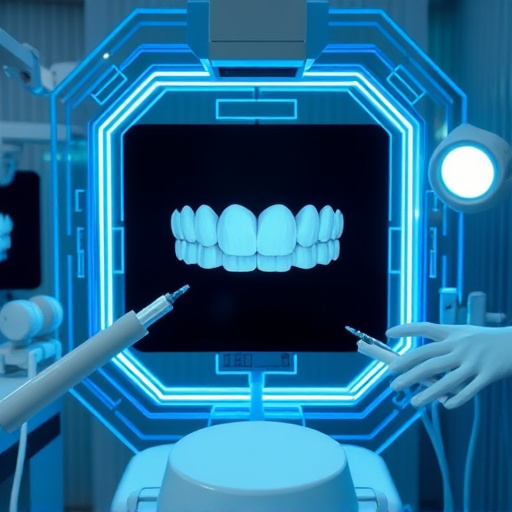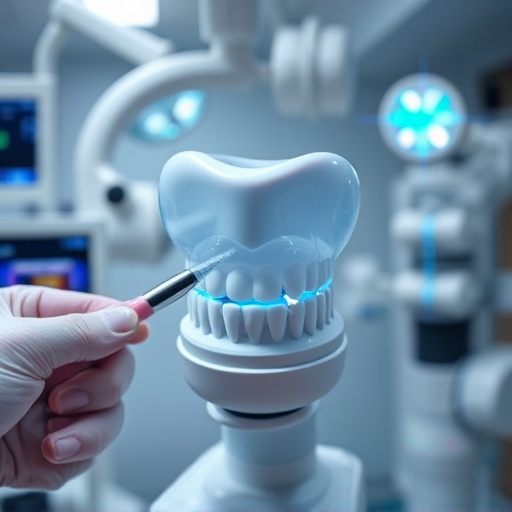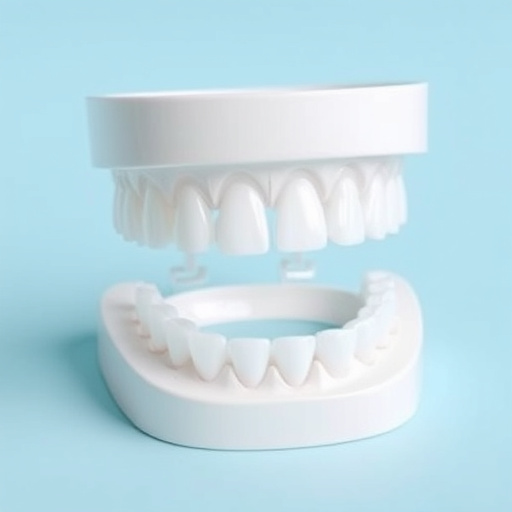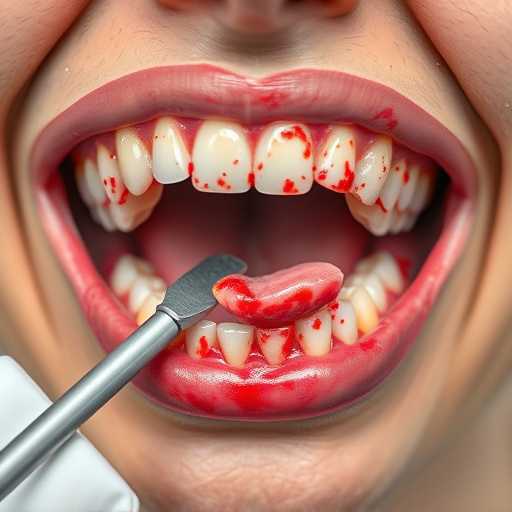Antibiotic therapy treatment, a medical breakthrough, revolutionizes infectious disease management by combating and preventing harmful bacterial infections. It offers significant benefits in pediatric care, preventing dental complications and promoting overall well-being through the elimination of tooth decay-causing bacteria. Effective for various conditions including respiratory tract, urinary tract, skin, and dental procedures, this therapy enhances patient outcomes when used appropriately—through accurate diagnosis, correct antibiotic selection, adherence to dosage, regular dental check-ups, and proper oral hygiene education.
Antibiotic therapy treatment is a powerful tool in combating bacterial infections, offering swift relief and healing. This article delves into the science behind antibiotic therapy, exploring its mechanisms and significant benefits. We’ll guide you through common infection types that respond well to this treatment, emphasizing proper usage and management for optimal results. Discover how timely administration and responsible prescribing enhance its effectiveness, making it a game-changer in modern medicine.
- Understanding Antibiotic Therapy: How It Works and Its Benefits
- Common Types of Infections Treated with Antibiotic Therapy
- Effective Use and Management of Antibiotics for Optimal Relief
Understanding Antibiotic Therapy: How It Works and Its Benefits
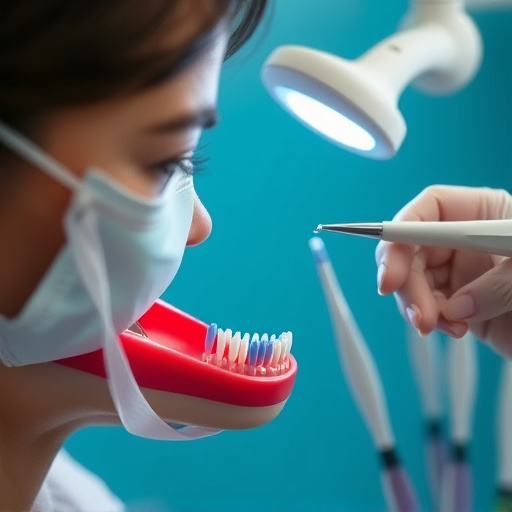
Antibiotic therapy treatment is a medical marvel that has transformed the way we combat infectious diseases. This powerful approach involves the use of antibiotics, which are medications designed to kill or inhibit the growth of harmful bacteria within the body. By targeting specific bacterial infections, antibiotic therapy offers a swift and effective solution, providing much-needed relief for patients suffering from various ailments.
The benefits of antibiotic therapy are numerous. Firstly, it acts as a rapid intervention, significantly reducing the severity and duration of infections. This is particularly crucial in pediatric care, where timely treatment can prevent complications in children’s dentistry. Moreover, antibiotics play a vital role in tooth repair and maintaining oral health by eliminating bacterial infections that may lead to tooth decay or necessitate procedures like dental crowns. With its ability to eradicate pathogens, antibiotic therapy not only treats existing infections but also helps prevent the spread of bacteria, thereby promoting overall well-being.
Common Types of Infections Treated with Antibiotic Therapy

Antibiotic therapy treatment is a common and effective approach to combating various bacterial infections. Some of the most prevalent types include respiratory tract infections, such as pneumonia and bronchitis, which can be life-threatening, especially in vulnerable populations like the elderly or young children. Urinary tract infections (UTIs) are another frequent target for antibiotic therapy, offering rapid relief from discomfort and urinary symptoms.
Additionally, skin and soft tissue infections, often requiring surgical drainage along with antibiotics, are routinely treated to prevent complications. In dentistry, antibiotic therapy plays a vital role in procedures like root canals and dental fillings, providing comprehensive dental care by managing infections within the mouth. General dentistry practices also rely on these treatments to address a wide range of bacterial infections, ensuring better patient outcomes and overall health.
Effective Use and Management of Antibiotics for Optimal Relief

Antibiotic therapy treatment is most effective when used appropriately. Proper management involves several key steps. Firstly, a dentist or healthcare provider should accurately diagnose the infection to ensure the right antibiotic is prescribed. This process often includes a thorough examination and, in some cases, cultural or sensitivity tests. Once the correct antibiotic is chosen, it’s crucial to follow the recommended dosage and duration strictly. Overusing or misusing antibiotics can lead to bacterial resistance, making future infections more challenging to treat.
Regular dental check-ups play a vital role in optimal relief. General dentistry practices often emphasize preventive care, including teeth cleaning, which helps maintain oral health and reduce the risk of infections requiring antibiotic therapy. For children’s dentistry, it’s particularly important to educate parents on proper oral hygiene to prevent common infections that might necessitate antibiotic treatment.
Antibiotic therapy treatment has proven to be a reliable solution for various infections, offering swift relief and recovery. Understanding its mechanisms and proper usage is key to reaping maximum benefits. By knowing the common types of infections it treats and following effective management practices, individuals can ensure optimal results and reduce the risk of antibiotic resistance. This powerful tool continues to play a vital role in modern healthcare.








